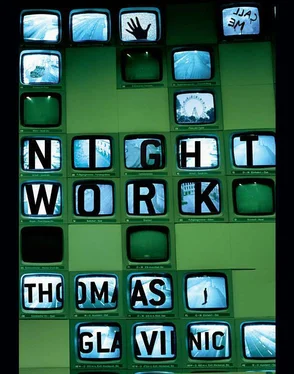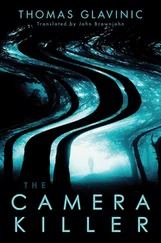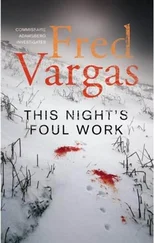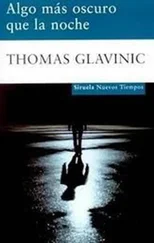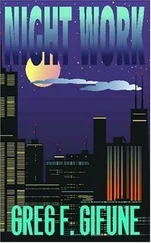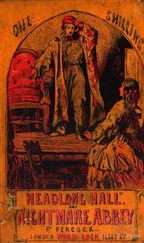Thomas Glavinic - Night Work
Здесь есть возможность читать онлайн «Thomas Glavinic - Night Work» весь текст электронной книги совершенно бесплатно (целиком полную версию без сокращений). В некоторых случаях можно слушать аудио, скачать через торрент в формате fb2 и присутствует краткое содержание. Год выпуска: 2008, Издательство: Canongate Books, Жанр: Современная проза, на английском языке. Описание произведения, (предисловие) а так же отзывы посетителей доступны на портале библиотеки ЛибКат.
- Название:Night Work
- Автор:
- Издательство:Canongate Books
- Жанр:
- Год:2008
- ISBN:нет данных
- Рейтинг книги:5 / 5. Голосов: 2
-
Избранное:Добавить в избранное
- Отзывы:
-
Ваша оценка:
- 100
- 1
- 2
- 3
- 4
- 5
Night Work: краткое содержание, описание и аннотация
Предлагаем к чтению аннотацию, описание, краткое содержание или предисловие (зависит от того, что написал сам автор книги «Night Work»). Если вы не нашли необходимую информацию о книге — напишите в комментариях, мы постараемся отыскать её.
Night Work — читать онлайн бесплатно полную книгу (весь текст) целиком
Ниже представлен текст книги, разбитый по страницам. Система сохранения места последней прочитанной страницы, позволяет с удобством читать онлайн бесплатно книгу «Night Work», без необходимости каждый раз заново искать на чём Вы остановились. Поставьте закладку, и сможете в любой момент перейти на страницу, на которой закончили чтение.
Интервал:
Закладка:
After a few seconds he realised that he wasn’t flying or hovering; he was on board a ship, an enormous liner lying at anchor in a big harbour. He had no time to reflect on this, however, because another realisation hit him.
He was sitting in a wheelchair, unable to move his legs. Draped over his knees was a rug of the kind seen in films when paraplegics are taken out for an airing.
He made another attempt to move his legs. They didn’t move a single millimetre. He could wriggle and flex his toes at will, but that was all.
The wind was blowing a gale. He shivered. At the same time he was hot inside. He was too appalled by his crippled state to speak or think. Before long his mood changed. Horror gave way to dejection and dejection to fury.
Never to be able to walk again.
The fact that, being paralysed, he would probably never leave this ship, let alone reach the Scottish border or return to Vienna, came home to him in all its implications. What shocked him most of all, however, was that something irreversible had happened to him. Something would never again be as it had been. In their heart of hearts, everyone itched to commit some irrevocable act. Like pushing some inoffensive stranger in front of a train. Or jerking the steering wheel while driving at 180 k.p.h. Or throwing a friend’s pet dog out of a sixth-floor window. You didn’t have to be a murderer or a suicide to experience that urge. Just a human being.
And now it had happened to him. Something that divided life into before and after. In a way, this wheelchair meant something even worse than waking up in a world emptied of its inhabitants. Because it affected him directly. His body, his last frontier.
He gazed out to sea. Far below him, waves were breaking against the ship’s side with a monotonous, resounding crash. The wind carried the sound upwards, set a canvas awning fluttering, caused some tackle nearby to vibrate.
‘Yes.’
He had to clear his throat.
‘Yes, yes, that’s the way it is.’
*
Could a paraplegic really move his toes?
Could he really feel his thigh when he slapped it?
He tugged at the rug. It was so firmly pinned beneath him, freeing it was quite an effort. At last, with a sudden jerk, he pulled it off his lap.
And saw that his legs were tightly secured to the chair with insulating tape.
There was something shiny beneath his feet: a snapped-off knife blade. Performing painful contortions, Jonas managed to bend down and pick it up. He cut his bonds. The blood streamed back into his legs so violently he cried out.
It was several minutes before his limbs felt somewhat less numb. He stood up, holding on to the back of the chair. Dragging his left leg, which had gone to sleep, he hobbled into the cabin.
He’d never seen such a luxurious suite in any hotel, let alone on board ship: fine wood and leather, lights everywhere, comfortable armchairs, an outsize plasma screen on the wall. An elegant spiral staircase leading to an upper deck.
Some notepaper was lying on the bureau. Jonas looked at the letterhead: Queen Mary 2 .
*
Southampton docks were the biggest Jonas had ever seen. Their size meant he very soon found a car with the key in the ignition.
He drove slowly through the deserted streets in search of a bookshop. At one point his route was blocked by a truck, but he didn’t dare get out to investigate. He felt he was negotiating a minefield. Although this English seaport seemed no more menacing and mysterious than any other deserted city, he found its lifelessness unpleasant, far more so than that of Vienna, where he was at least familiar with the streets.
A bookshop at last. He got out. A binbag full of empty wine bottles was lying on the pavement. He picked it up and hurled it blindly at some shop windows, hunched his shoulders and performed a clumsy dance, giving an impression of a drunken hooligan.
The door of the bookshop was open. A spacious two-storeyed establishment, it was lined from floor to ceiling with bookshelves. Aluminium ladders were leaning against them. The musty interior smelt of paper, of books.
He found the reference section after fifteen minutes and a pharmacopoeia after another ten. Then came the hardest part of his task. He didn’t even know the German term for what he was looking for. There had to be some remedy for sleeping sickness. Sleeping sickness was also known as narcolepsy. So he looked up Narcolepsy. Nothing under that heading. Narcolon, Narcolute and Narcolyte were the first terms that appeared on the relevant page.
The nature and effect of those drugs were described in detail, and Jonas had to devote some time and effort to each entry before he could be sure that none of them would be of help. They were soporifics, not sleep-inhibitors. But what would a drug against sleeping sickness be called? Antinarco? Narcostop? He bit his lip and went on turning the pages.
Although it wasn’t midday yet, he could already feel tiredness stealing over him. This spurred him on. What he was doing now he should have done yesterday or the day before. If he allowed things to get to a stage where the Sleeper merely woke him up for brief periods in random locations before sleep overcame him once more, he would be …
Lost.
Yes, lost.
No, he was lost already. If the Sleeper gained complete control over him, he would be something other than that. What would he be then?
Conscious that he was staring into space, he straightened up again.
*
That afternoon he found it. He turned the page on impulse. At first he thought he was mistaken, believing that his clouded brain was merely misrepresenting what he was reading. But he checked and checked again until he was satisfied that, according to the pharmacopoeia, the drug Umirome contained various stimulants such as ephedrine and was one of the most effective remedies for sleeping sickness available.
*
A nearby chemist’s stocked Umirome. Jonas took a bag and filled it with boxes of the stuff, ten of them with sixteen tablets in each. If need be, he would take every last one.
There was a fridge in the back room. Jonas looked for some mineral water, but all it contained, apart from a slab of butter and a piece of vacuum-packed steak, were some two dozen cans of beer. He shrugged his shoulders and cracked a can. Modern drugs were OK with alcohol. Besides, gastric discomfort or mild inebriation were the least of his concerns. He swallowed a tablet and put the box in his pocket.
Maximum daily dose: two tablets.
He fished out the box again and took another.
27
It was the motorway that seemed to move while Jonas stayed where he was. His car made no sound, the white lines glided past and the scenery changed, but he might have been stationary.
The tyreless car flashed past him. He raised his arm stiffly, unable to wave, then turned and watched it grow smaller. When he turned back again he noticed that the countryside was moving past far more slowly. He put his foot back on the accelerator and everything went back to how it had been before.
Shortly before it got dark he stopped near Northampton for some food. He searched the kitchen of a pub, but all he found was a rock-hard loaf, some rancid bacon and several eggs he didn’t dare to eat. As he turned to go he caught sight of some tins on a shelf. Without bothering to check what was in them, he tipped the contents of two of them into a saucepan.
*
It was dark. He was driving, he realised. He seemed to be getting used to the effects of the drug. Its effects and side effects. He was alert and lucid, without a trace of fatigue. His heart was racing, his forehead permanently moist with sweat. When he wiped the film away it reappeared within ten seconds. Before long the wiping became just a habit.
Читать дальшеИнтервал:
Закладка:
Похожие книги на «Night Work»
Представляем Вашему вниманию похожие книги на «Night Work» списком для выбора. Мы отобрали схожую по названию и смыслу литературу в надежде предоставить читателям больше вариантов отыскать новые, интересные, ещё непрочитанные произведения.
Обсуждение, отзывы о книге «Night Work» и просто собственные мнения читателей. Оставьте ваши комментарии, напишите, что Вы думаете о произведении, его смысле или главных героях. Укажите что конкретно понравилось, а что нет, и почему Вы так считаете.
